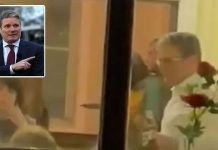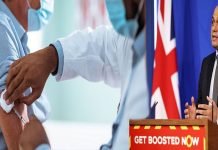Spanish Prime Minister Pedro Sanchez has declared a second national state of emergency, imposing a curfew and allowing closure of internal borders.
An extraordinary meeting of the Council of Ministers was held in Madrid on Sunday morning “in order to examine the terms of a new royal decree on a state of alert,” a communiqué released by Prime Minister Pedro Sachez’s office said on Saturday evening.
It added that “the proposal has been welcomed by the majority” of Spain’s regional governments, “which have requested it”.
In a meeting that lasted two hours, the cabinet agreed to an initial 15-day state of alarm. Local media reports claim the government intends to extend the measure until May 2021.
“We are living in an extreme situation … it is the most serious in the last half-century,” Spanish Prime Minister Pedro Sanchez told a news conference after a cabinet meeting on Sunday.
“The reality is that Europe and Spain are immersed in a second wave of the pandemic,” he said.
The drastic measure goes into force from Sunday night and will require all regions except the Canary Islands to impose a nighttime curfew from 11pm to 6am (22:00-05:00 GMT).
It will remain in place for at least two weeks, and any further extension would need parliamentary approval, according to the constitution.
“The more mobility, the more infections,” said Sanchez, who said he hoped to extend the state of emergency up to May 9, 2021.
“Let’s stay at home.”
This will be the second state of emergency declared this year in Spain after one in March to contain the first wave of the coronavirus lasted until June. This is just the fourth time a state of emergency has been declared since Spain’s transition to democracy in the 1970s.
Sanchez prepared the groundwork on Friday in a speech in which he warned the country that “the situation (was) serious,” that “the coming weeks and months… [would] be hard, very hard” and that he was “ready to adopt all necessary measures” to curb the pandemic.
Two days earlier, Spain became the first European Union country and the sixth in the world to exceed one million cases of COVID-19, with Sanchez admitting on Friday that the real number of people infected with the coronavirus in Spain was estimated to be over three million.
Spain has so far recorded nearly 35,000 deaths since the start of the pandemic.
In the hours following Sanchez’s speech, several regional presidents immediately called on him to declare the state of health emergency so that a curfew could be imposed to limit travel and night-time gatherings.
The regions ran the risk of having their measures annulled by the courts because they infringe on freedoms – this is particularly the case in the Basque Country.
In Spain, public health is the prerogative of each regions.
The state of emergency was therefore required to provide the legal framework to remove the anti-COVID measures taken by regional governments from the control of the courts.
Sanchez decided to act after he was assured that he would have sufficient support to obtain the renewal of this state of health emergency when it expires after 15 days.
The PM is leading a minority left-wing coalition government, but Basque and Catalan nationalists and even a small centre-right party, Ciudadanos, which is part of the conservative opposition, are insisting on a state of emergency, guaranteeing him the necessary votes when the time comes.
The government has tried unsuccessfully to convince the main right-wing opposition party, the Popular Party (PP), to support this measure.
The PP has fiercely opposed the government’s declaration of a state of emergency in Madrid earlier this month. The move, which affected 4.8 million in the capital region, was contested in the courts, which sided with the Madrid government.
As of Sunday, Spain had recorded 1,046,132 coronavirus cases and 34,752 related deaths.
Help Us Sustain Ad-Free Journalism
Sorry, I Need To Put Out the Begging Bowl
Independent Journalism Needs You
Our unwavering dedication is to provide you with unbiased news, diverse perspectives, and insightful opinions. We're on a mission to ensure that those in positions of power are held accountable for their actions, but we can't do it alone. Labour Heartlands is primarily funded by me, Paul Knaggs, and by the generous contributions of readers like you. Your donations keep us going and help us uphold the principles of independent journalism. Join us in our quest for truth, transparency, and accountability – donate today and be a part of our mission!
Like everyone else, we're facing challenges, and we need your help to stay online and continue providing crucial journalism. Every contribution, no matter how small, goes a long way in helping us thrive. By becoming one of our donors, you become a vital part of our mission to uncover the truth and uphold the values of democracy.
While we maintain our independence from political affiliations, we stand united against corruption, injustice, and the erosion of free speech, truth, and democracy. We believe in the power of accurate information in a democracy, and we consider facts non-negotiable.
Your support, no matter the amount, can make a significant impact. Together, we can make a difference and continue our journey toward a more informed and just society.
Thank you for supporting Labour Heartlands











